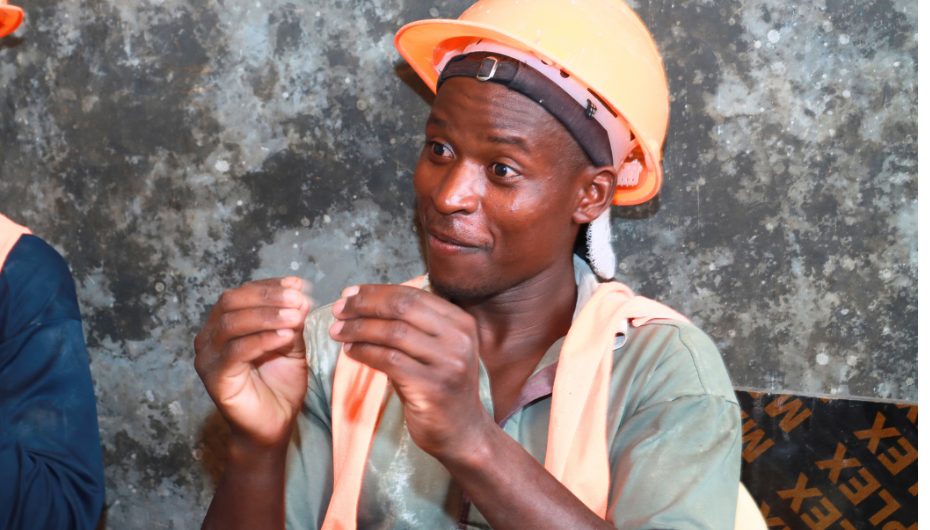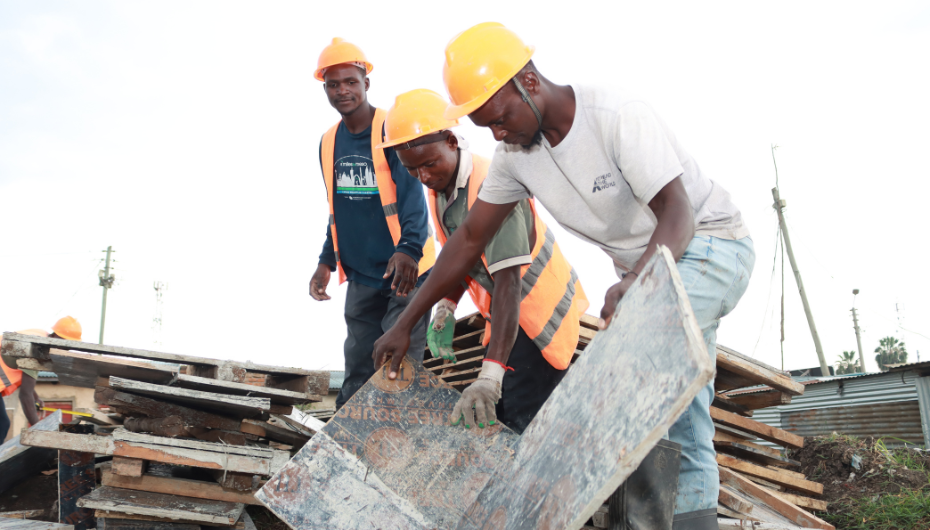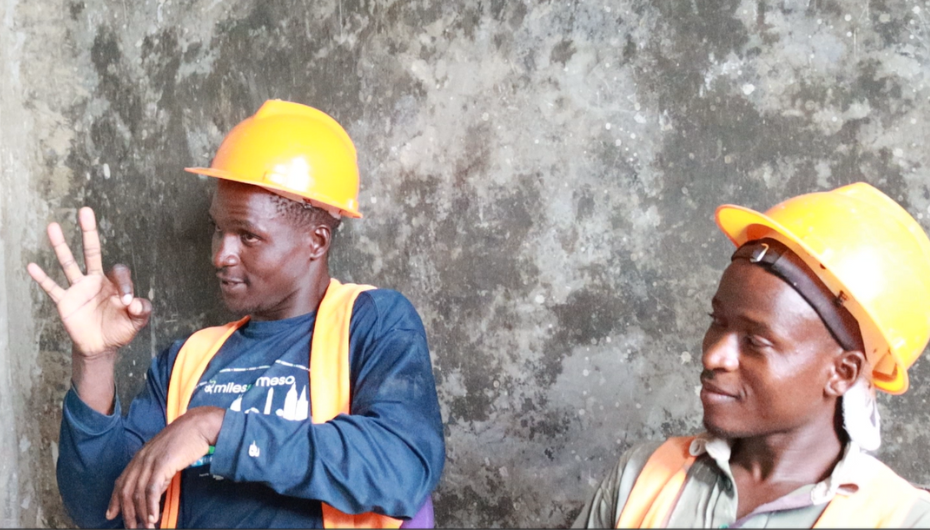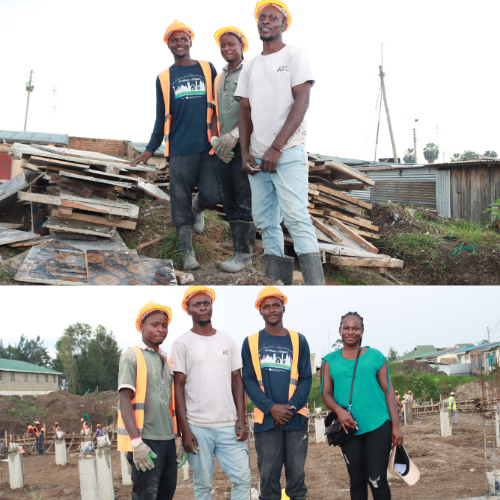Voices unheard now leading, transforming Disability Inclusive SRHR Advocacy
 06 November 2025
06 November 2025

Access to SRHR information remains limited, especially for youth with disabilities, ranging from awareness of their rights to available services. This gap is further exacerbated by the multiple, intersecting livelihood challenges they face.
Unique challenges youth with disabilities face
Access to SRHR information remains limited, especially for youth with disabilities, ranging from awareness of their rights to available services. This gap is further exacerbated by the multiple, intersecting socio economic and livelihood challenges they face.
One would wonder how inclusive and safe are the spaces where we engage young people with disabilities; whether in strategic meetings, community forums, or public dialogues?
In the heart of Kisumu County, nestled deep within the sugarcane plantations, lies Muhoroni Sub County, a remote community where sugar milling and sugarcane farming form the backbone of the local economy. For most families here, farming is not just a livelihood but a lifeline, with many living below the poverty line and relying on seasonal labor to make ends meet.
Amid these challenges, we meet two inspiring Make Way youth champions: Veron Oyudo (21) and Roy Juma (20), both of whom are deaf. Despite the barriers they face, Veron and Roy work as general laborers at a construction site in the bustling local market, where they also champion SRHR advocacy among their fellow workers.
“We could not proceed with our education due to lack of fees, hence we have resorted to make a living for ourselves, instead of engaging in any irrelevant activity or drug abuse, “they both explained.
This reflects the Make Way Programme’s intentional design to engage youth facing multiple, compounding vulnerabilities, particularly those in remote areas with limited access to information and services. By recognizing the intersecting challenges related to livelihoods, geography, and systemic exclusion, the programme ensures that no young person is left behind.
“Here in Muhoroni, there has been lack of awareness creation on SRHR, most people with disabilities do not understand this information being that in this rural set up, most parents lack this information and hindered by stereotypical belief that talking about SRHR is a bad thing, most parents refrain from teaching their deaf children on such topics besides, language barrier is an issue, so in most cases we as deaf boys, we are always left to maneuver on our own with no guidance and we may end up making wrong decisions, “Verone narrated
He proceeds to narrate that before he was engaged in the Make Way Programme , he did not have any information on SRHR and did not have any idea that as a young person with disability, he had rights to access SRH services due to several challenges he could encounter while visiting health facilities, highlighting the main issue as communication barrier, lack of youth friendly services and privacy.
Interacting with the Make Way Programme
As Roy narrates, “There was a time I went to the hospital and was misdiagnosed due to language barrier between the doctor and I, since we could only communicate through pen and paper, this was time consuming and I felt that the doctor was uncomfortable with that due to the long queue, therefore he just wrote paracetamol and yet in another hospital I was diagnosed with malaria.”
Upon Interacting with the Make Way programme, they found a safe space, they were equipped and empowered to take charge of their SRH rights. The two meaningfully participated in the scoring process at the Muhoroni Sub County Hospital during the rollout of Intersectional community scorecard.
As Roy narrates, “Together with other Make Way youth champions we participated in the county’s public participation where we advocated for the allocation of resources in healthcare facilities to improve SRH services for persons with disabilities, and we can see the facility was facelifted and even the road leading to the facility had been tarmacked and that is courtesy of how Make Way engaged us meaningfully.”

Verone and Roy among the Make Way youth champions during The ICSC rollout in Muhoroni sub County
For Verone, he has experienced more than this, he has seen personal growth, from acquiring knowledge and education, boosting self-esteem and general behavior change as well as SRHR advocacy skills, this has transformed his life as a young person with disability.
Through the various sessions with other youths within the spaces, he acquired skills and learnt how to advocate for SRHR in the community through religious leaders and duty bearers. He has especially involved his pastor, who was amused by his sudden behavioral change through the programme, in SRHR advocacy in the community and other church fora
“The Make Way Programme led to my behavioral change, before I was engaged in the programme, I was shy I could hardly speak before an audience, as a deaf person who had no information on SRHR, I had tolerated a lot of irresponsible partner relationships, I had no clue on the difference between healthy relationships and multiple partners, I was notorious and even my pastor was concerned of my behaviors, however through the sessions with other youth champions, I learnt and my behaviors changed. Now I am SRHR advocate in the community.” Verone concluded.
From a changed youth to now SRHR advocate even at his work station where he teaches other young men the importance of healthier relationships and how to access modern contraceptives.

Roy Juma, 20, Make Way Youth Champion
“To us Make Way has been a transformational journey, we were so green on SRHR, it gave us safe space, we could be meaningfully engaged at a table with county executives, with health workers and our voices could be heard and considered and most importantly, whenever we had a session, a sign language interpreter could be brought and we felt included,” reflected Roy.
“For us, the advocacy journey does not stop beyond Make Way, we are still continuing with the initiative as we have been equipped with Make Way tools that still support our community led advocacy, we are able to engage various stakeholders, and we have the safe spaces for advocacy.” they concluded
The story of the two explains the intersecting livelihood challenges most youth with disabilities face. From lack of education, lack of access to information, poverty, poor service provision among others, and that is why the programme emerged, to create paths for them to lead.
CDSK through the Make Way programme, involved youth with disabilities to lead in SRHR advocacy with the aspect of disability inclusion, just as the Programme’s Meaningful Youth Engagement strategy, youth with disabilities were seen as the frontline leaders but not beneficiary or recipient of the Programme’s initiatives.

Roy, Veron, Masiko and CDSK Make Way representative



